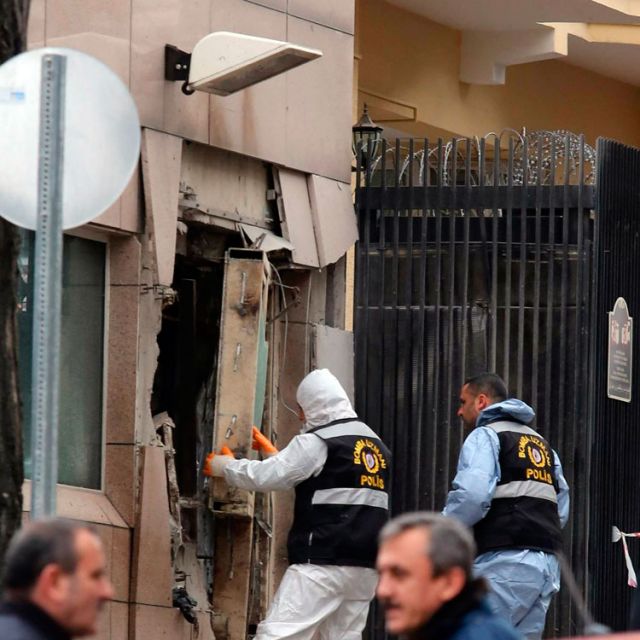This news, combined with continued reports surrounding the Feb. 1 attack on the U.S. Embassy in the Turkish capital, Ankara, made praying especially important, Mutlucu told Catholic News Service Feb. 3.
Mutlucu expressed concern that Americans were thinking Turkey was "very bad."
"But (in) all countries in the world there are some places dangerous ... we must pray," said Mutlucu, whose only son works and lives in the United States.
Circumstances surrounding Sierra's death in Istanbul and the suicide bombing on the U.S. mission in Ankara filled newspaper headlines and news bulletins across Turkey, a predominantly Muslim country of about 75 million people.
The body of 33-year-old Sierra, a New York mother of two, was found bludgeoned, half-naked and near a blanket at the foot of an ancient Byzantine wall in Istanbul Feb. 2, according to the local media, which reported several suspects were arrested.
The Feb. 1 attack on the U.S. mission in Ankara killed Turkish security guard Mustafa Akarsu as well as the bomber, Ecevit Sanli, whom Turkish press say was the member of an ultra-leftist, anti-American terrorist group. A Turkish journalist, Didem Tuncay, was critically injured in the blast as she was entering the embassy to meet with U.S. Ambassador Francis J. Ricciardone, media reported.
The evening of Feb. 3, there were more worshippers than usual at The Nativity of the Virgin Mary, a Catholic Church not far from Istanbul's U.S. Consulate. Among those praying was regular Jane McGonagle, a school teacher originally from Quincy, Mass., who said that after "a midlife crisis" six months ago, she had come to work and live in Turkey. She said her Internet was down and she had not heard of the death of the tourist, but learned of the suicide attack on the U.S. Embassy soon after it had occurred because the private Istanbul school where she teaches went into lock-down mode.
"I don't feel frightened but I understand (that) when you are home in the States and hear about some kind of attacks in a country, you become alarmed," said McGonagle, who said she had no plans to leave before her two-year contract ended and was enjoying learning about Islam from Muslim friends.
Near Sts. Peter and Paul, American Anne Dammarell and her sister ended their first day of touring Turkey with a late dinner of chicken and lamb kebabs at a restaurant serving traditional Turkish food. They had heard of the Ankara attack while in Bangkok, where they are teaching in a program run by the U.S. Catholic Maryknoll order.
"It's a lifetime process of pain for people" who lose loved ones, said Dammarell, who survived the 1983 suicide bombing on the U.S. Embassy in Beirut, Lebanon, which killed more than 60 people. She said she broke 19 bones and needed "three years of repeated operations" in order to physically recover from it.
"Every bombing is horrible. The cost is so large because the agony never ends for those involved," added her sister, Elizabeth Simon, who said she was not afraid in Turkey, even after the attack and Sierra's death "since Anne has been through what she's been through."
"But I am not fatalistic and I do know ... that attacks can kill," she said.
On Feb. 5, the sisters visited the Gregorian Armenian Orthodox Church of the Three Altars, where Sierra's body was awaiting repatriation to the United States.
"Elizabeth wants to say a little prayer for her," said Dammarell, who watched.
Izzet Taskiran was one of several Turkish journalists reporting from outside the ancient church's stone entrance.
"Turkish people are very sad, and very hurt," he said, upon seeing the American visitors.


